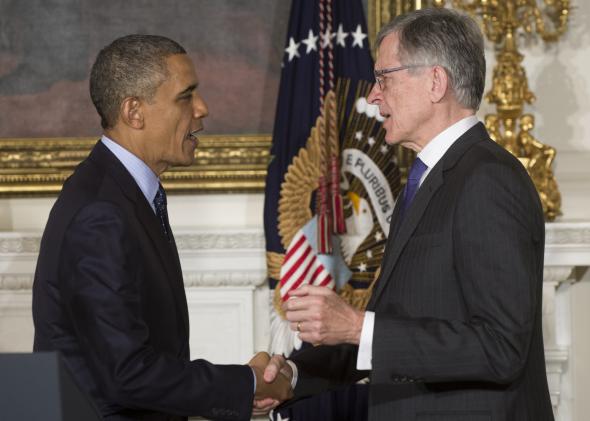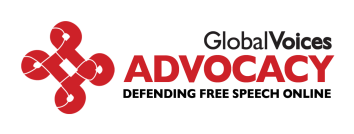Netizen Report: Whether North or South, Net Neutrality Is a Tough Nut to Crack

Photo by Saul Loeb/AFP/Getty Images
The Netizen Report originally appears each week on Global Voices Advocacy. Ellery Roberts Biddle, Hae-in Lim, Bojan Perkov, and Sarah Myers West contributed to this report.
Global Voices Advocacy’s Netizen Report offers an international snapshot of challenges, victories, and emerging trends in Internet rights around the world. We begin this report with a look at policy making on network neutrality in Argentina and the United States.
Argentina’s Congress is preparing to review the Argentina Digital Bill, a broad-based law intended to address various online content issues including copyright and net neutrality. Although the bill was originally regarded as a positive step toward protecting net neutrality, the current language simply “guarantees net neutrality”—a stipulation far too vague to ensure that Internet service providers will actually treat all online content and traffic equally. Global Voices contributor and Buenos Aires-based legal scholar Eduardo Bertoni told the Buenos Aires Herald, “[T]o say the country ‘guarantees’ net neutrality without saying what they understand by that is a serious legislative deficiency.”
Meanwhile in the United States, President Barack Obama called on the Federal Communications Commission to “answer the call of almost 4 million public comments, and implement the strongest possible rules to protect net neutrality” by classifying Internet service providers as a public utility, similar to electricity or telephone service.
Nigeria joins the worldwide cybercrime law craze
Senators in Nigeria approved a new cybercrime law that criminalizes identity theft, child pornography possession, and various forms of online fraud, among other activities. Written in an effort to raise meet international standards and encourage foreign investment in the country, the law also punishes Internet cafe owners who “knowingly allow their premises to be used for committing a crime.” Violators will face a minimum prison sentence of seven years or a fine of approximately $350,000. As with many laws intended to reduce online crime, critics fear the policy could be abused to punish online activists. The bill awaits approval from the House of Representatives and may be amended before it reaches President Goodluck Jonathan for final sign-off.
Tor crackdown in the U.S.
Seventeen people were arrested and 414 .onion domains were seized by the FBI in a major crackdown on black market websites operating over the Tor anonymity network, including the Silk Road 2, Cloud 9, and Hydra. It remains unclear what vulnerabilities law enforcement authorities exploited in order to seize the domains. Foreign Policy speculates American and European authorities may be overplaying their ability to break Tor in order to prevent others from using it, while the Tor Project has offered possible scenarios through which the authorities may have located the hidden services. Either way, the raid raises serious concerns about the preservation of anonymity and security online.
Surveillance is a “highly intrusive act,” say Germany and Brazil
Germany and Brazil are calling for changes to a United Nations draft resolution on state surveillance that would define metadata collection as a “highly intrusive act.” A vote on the draft will take place in the U.N. General Assembly’s Third Committee, which deals with human rights, later this month before proceeding to the resolution stage in December.
Rough Consensus or “U.N. Security Council of the Internet”?
The Internet Corporation for Assigned Names and Numbers, the World Economic Forum, and CGI.br announced the launch of the NetMundial Initiative this week, a new group that aims to find solutions to Internet governance issues through crowd-sourcing and crowd-funding initiatives. The initiative will be run by a 25-member coordination council that will make decisions based on rough consensus. Spearheaded by ICANN, the initiative has received criticism from members of the Internet community due to a lack of transparency around the organization’s development, and has been called the “U.N. Security Council of the Internet.”
Cool Things
Enterprising artist Carla Gannis re-created Hieronymous Bosch’s 1505 masterpiece painting “The Garden of Earthly Delights” using emoji.
New Research
- “Out of the Shadows, Into the Streets”—Sasha Costanza-Chock
- “Communities @ Risk: Targeted Digital Threats Against Civil Society”—Citizen Lab
Future Tense is a partnership of Slate, New America, and Arizona State University.

